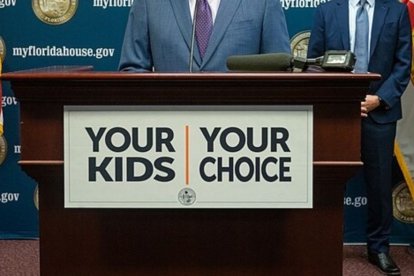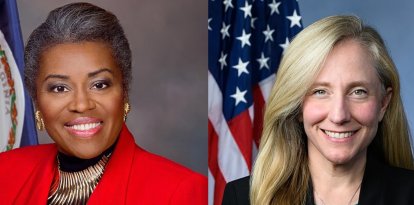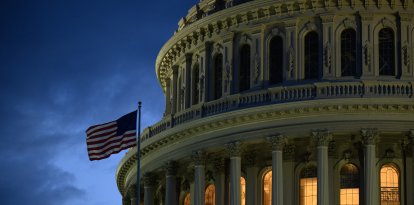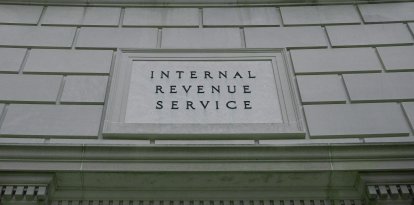Oklahoma Supreme Court rejects plan for the country's first religious charter school
The case is expected to be appealed, which could eventually escalate it all the way to the Supreme Court (SCOTUS). The school was scheduled to open in August.

School Choice
The Oklahoma Supreme Court rejected a plan to create what would have been the first publicly funded charter religious school in the United States. By a 7-1 decision, the state's highest court ruled against funding St. Isidore of Seville Virtual Charter School, which was scheduled to open in August.
In 2023, the State Board of Virtual Charter Schools had given the Catholic Archdiocese of Oklahoma the green light to open the school, which for now will have to wait.
The justices found that the school would have violated the Establishment Clause, which prohibits the government from making any law "with respect to a religious institution." The ruling also adds that both state and federal laws would have been violated.
"Under Oklahoma law, a charter school is a public school. As such, a charter school must be nonsectarian," wrote Judge James Winchester, who was appointed by former Republican Gov. Frank Keating, in the majority opinion.
"However, St. Isidore will evangelize the Catholic school curriculum while sponsored by the state," he added.
Both the Catholic Archdiocese of Oklahoma and the Diocese of Tulsa said that they "will consider all legal options," which means that the case could make its way to the Supreme Court in the future.
Judge Dana Kuehn, the only judge to vote in favor, argued that the exclusion of this school, based solely on its religious affiliation, would violate the Free Exercise Clause of the First Amendment of the U.S. Constitution.
She also added that the state Constitution does not prohibit Oklahoma from funding religious schools, as long as state-funded nonreligious options are available, Kuehn wrote.
Oklahoma's response
The state attorney general, Gentner Drummond, celebrated the ruling, claiming that it is a victory for religious freedom.
"This decision is a tremendous victory for religious liberty. The framers of the U.S. Constitution and those who drafted Oklahoma’s Constitution clearly understood how best to protect religious freedom: by preventing the State from sponsoring any religion at all. Now Oklahomans can be assured that our tax dollars will not fund the teachings of Sharia Law or even Satanism. While I understand that the Governor and other politicians are disappointed with this outcome, I hope that the people of Oklahoma can rejoice that they will not be compelled to fund radical religious schools that violate their faith," he wrote in a statement.
">The Oklahoma Supreme Court ruled today against allowing what would have been the nation’s first taxpayer-funded, state-sponsored religious public charter school. https://t.co/uBtFk7ASI6 pic.twitter.com/ckhyADMXmb
— Oklahoma Attorney General Gentner Drummond (@Okla_OAG) June 25, 2024
RECOMMENDATION























